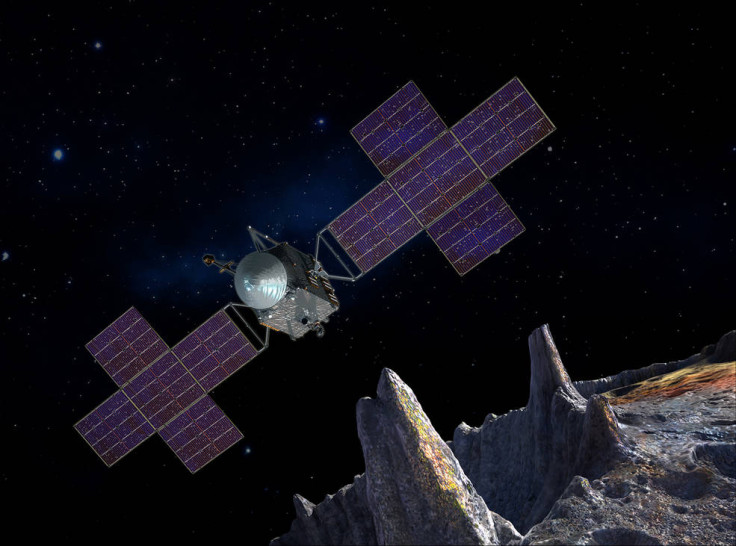Nasa fast-tracks Psyche mission to explore a $10,000 quadrillion metal asteroid
Psyche is an asteroid orbiting the Sun between Mars and Jupiter and is made almost entirely out of iron.

Nasa may have pushed back launching manned Mars missions but it just moved up an explorative mission to a unique asteroid orbiting the sun between Mars and Jupiter. Dubbed 19 Psyche, the asteroid is made up almost entirely of nickel-iron metal. Nasa moved its plan to launch a mission to the metal asteroid by a year and is now planning to launch its discovery mission in the summer of 2022.
The asteroid is also believed to contain various other metals such as gold, copper, platinum, cobalt, iridium and more. However, the iron alone is estimated to be worth around $10,000 quadrillion.
"We challenged the mission design team to explore if an earlier launch date could provide a more efficient trajectory to the asteroid Psyche, and they came through in a big way," Jim Green, director of the Planetary Science Division at Nasa headquarters said in a statement. "This will enable us to fulfill our science objectives sooner and at a reduced cost."
The new mission parameters also mean that the spacecraft is expected to arrive at the main asteroid belt in 2026, "four years earlier than the original timeline," according to Nasa.
"The change in plans is a great boost for the team and the mission," said Psyche project manager Henry Stone at Nasa's Jet Propulsion Laboratory. "Our mission design team did a fantastic job coming up with this ideal launch opportunity."
The Psyche spacecraft has also been upgraded for the mission and has been fitted with "very high-power solar array design," which will allow it to travel at faster speeds than is normal for larger spacecrafts.
Why is the mission important?
According to Nasa, the mission is aimed at the mysteries of how planets were formed. "The mission team seeks to determine whether Psyche is the core of an early planet, how old it is, whether it formed in similar ways to Earth's core, and what its surface is like," Nasa said.
The space agency had originally announced that it would launch its Psyche discovery mission in 2023.
"This mission would be a journey back in time to one of the earliest periods of planetary accretion, when the first bodies were not only differentiating, but were being pulverized, shredded, and accreted by collisions," Lindy Elkins-Tanton, lead scientist on the Nasa mission and the director of Arizona State University's School of Earth and Space Exploration, and her team said in a Lunar and Planetary conference in 2014. "It is also an exploration, by proxy, of the interiors of terrestrial planets and satellites today: we cannot visit a metallic core any other way."
© Copyright IBTimes 2024. All rights reserved.






